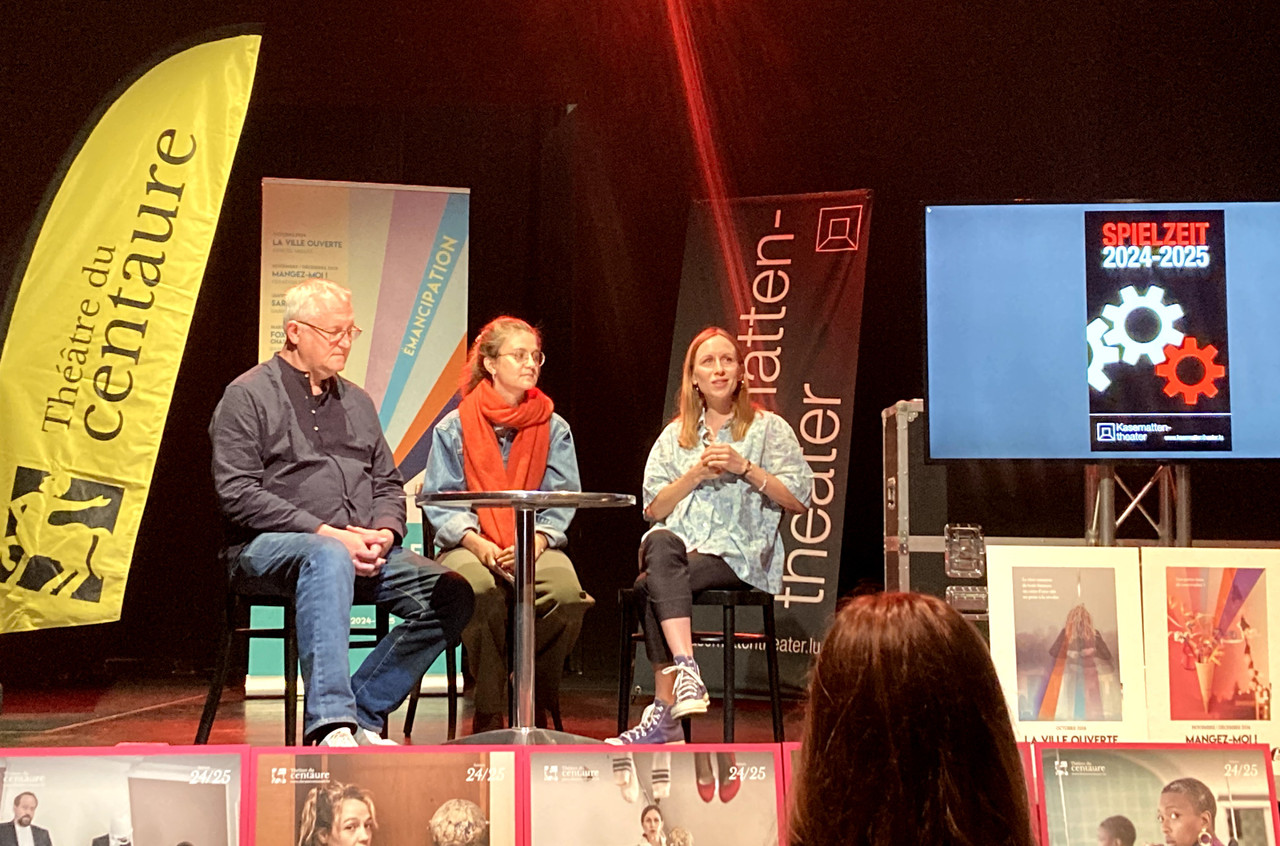Traditionally, Luxembourg's 'small theatres' join forces to present their new seasons. It’s a single presentation for multiple seasons. The Kasemattentheater opened the session on Monday with a slogan for the new season: gears. "In a world of ever-increasing extremes, it is imperative to ask questions, to think collectively and to understand how the machine works", said Eugénie Anselin, who has just taken over as chair of the theatre, succeeding Lex Weyer who is "leaving his place to the new generation".
First of all, a number of musical highlights are planned: Mayhem (25 September) by the Reis-Dahm-Martiny trio, a tribute to clarinettist Michel Pilz; Nausicca (14 November) with the Italian duo Severini - Ferrazza; and Abri'Lux (26 April), which explores Portugal's musical and political heritage. Apoplexie (15-18 October) is Claire Thill's new production, which plunges the audience into a strange world somewhere between Stephen King and David Lynch. The play Die Katze Eleonore (18, 20 December), about a woman who resists society and thinks she's a cat, has a surprising theme, to say the least. Other dates to remember include Dammriss (25-29 June and 1-2 July), Anselin's latest creation, which explores the evolution of a couple after the arrival of a child.
Women’s issues at Centaure
Another theatre, another line-up. For the Centaure, whose chair has also just changed with the arrival of Chantal Rob, this season is all about youth, friendship and women's struggles. These include three women's monologues: the revival of La Poupée Barbue (7-15 November), which deals with resilience in wartime, and Norma Jeane Baker de Troie (21-29 November), which combines the destinies of two women - Norma Jeane Baker aka Marilyn Monroe and Hélène de Troie - who had to build an image to guarantee their survival. Marja-Leena Junker will be directing Prima Facie (24-27 April, 6-18 May), a play by Australian author Suzie Miller. Actress Céline Camara will play a lawyer who defends men accused of sexual assault and who overnight finds herself as the complainant. Other highlights include the premiere of Vandalium (13-16 February, 4-26 March), a play by Tullio Forgiarini about a teenager on the fringes of society in Luxembourg, and the staging by Myriam Muller, also artistic director of the Théâtre du Centaure, of Yasmina Reza's classic Art (17-25 October).
TOL celebrates emancipation
Finally, Véronique Fauconnet announced that the 2024-2025 season would focus on emancipation on the stage of the Théâtre Ouvert Luxembourg. "Theatre is there to liberate us, take us elsewhere and give us wings", emphasised the TOL's artistic director. Audiences will be able to discover Sarah & Hugo (30-31 January, 1-13 February) by Daniel Keene. The play tells the story of a very close mother-son relationship, a love story that carries each of the protagonists further and helps them to face life's challenges. The feeling of living with a sword of Damocles is at the heart of Samuel Gallet's La ville ouverte (18-31 October), a play in which three women are confronted with a life that doesn't suit them and aspire to rebuild it. Manipulation and government control are at the heart of Dawn King's Foxfinder (27-29 March, 2-11 April), a play set against a backdrop of global warming and food shortages. In a completely different register, Video Club (22-27 May, 4-13 June) promises something closer to comedy: a couple who have been married for more than 25 years find themselves caught under the eye of a camera that insidiously films all their dirty tricks.
, ,
Read the French-language version of this article
